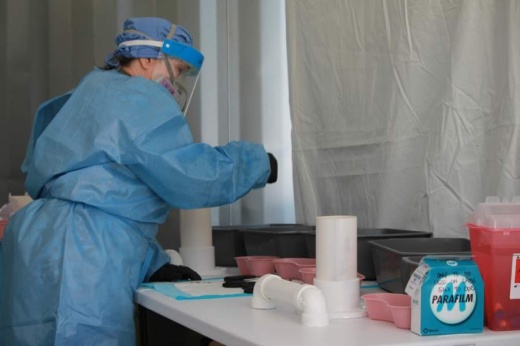Abbott, who laid out his plan to reopen parts of the Texas economy in an April 17 press conference, set April 22 as the date for hospitals to resume elective procedures. Abbott first directed hospitals to cancel elective surgeries with a March 22 executive order, at the time saying the move was necessary to allow doctors to focus on treating coronavirus patients.
In his April 17 announcement, Abbott said concerns over bed capacity and personal protective equipment were subsiding.
"Many doctors and nurses have been sidelined because of the need to postpone nonessential medical procedures," Abbot said. "Today, Texas has plenty of hospital capacity, we have a solid supply chain of PPE, and many of our doctors and nurses have patients who desperately need medical treatment. It is time to allow those doctors and nurses to return to work."
In the modified executive order, newly allowed procedures still must diagnose or correct a serious medical condition in which timeliness is needed to lower the risk of serious medical consequences or death. In his press conference, Abbott gave as an example a diagnostic test for suspected cancer.
Hospitals are also still required to reserve at least 25% of their capacity for COVID-19 patients, and Abbott has directed hospitals to demonstrate they will not request PPE from any public source for the remainder of the disaster declaration.
Hospitals that cannot perform elective procedures without taking resources away from COVID-19 patients must continue to restrict them, according to the order.
Medical community, local leaders react
In an April 17 statement, Texas Medical Association President David Fleeger applauded Abbott's order, calling it "gradual" and "science-based."
"The health of patients not affected by COVID-19 is an overwhelming concern," Fleeger said. "Telemedicine has been an important tool, but it does not substitute for hands-on examinations of growing children or diagnosing complex health problems. Many of our patients have put off desperately needed surgeries or procedures that can no longer be delayed."
As hospitals start performing elective procedures again, Fleeger said social distancing and increased testing remain critically important.
In an April 20 press conference, Harris County Judge Lina Hidalgo said the county plans to follow Abbott's guidelines on elective procedures, also emphasizing the importance of increasing testing capacity. Intake at local hospitals of new COVID-19 cases has been flat, and Hidalgo said hospital leaders have told her they are in a good position to start offering elective procedures.
"But we need to continue watching trends," she said. "Intake right now is flat, but if that begins rising again, we'll have to take a very close look at that."
In Williamson County in the Austin area, County Judge Bill Gravell updated an executive order to keep it aligned with Abbott's. Dr. Mark Escott, the interim health authority for Austin and Travis County, said Abbott's plans to reopen the economy align with the city's plans so far.
“This should not be seen as an indication that we’re over [the coronavirus],” Escott told Austin City Council on April 21. “This thing has not gone away, and it is not going away.”
Abbott's renewed executive order runs through 11:59 a.m. May 8 unless extended by Abbott.





